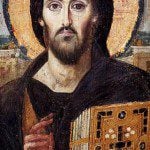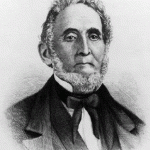
(Wikimedia Commons public domain image)
Some further notes from Alister E. McGrath, Darwinism and the Divine: Evolutionary Thought and Natural Theology (Chichester: Wiley-Blackwell, 2011):
So are the structures and symbols of the observed world self-contained and self-referential? Or might they hint at a deeper structure or level of meaning to the world, transcending what can be known through experience or observation? Christianity regards nature as a limiting horizon to the unaided human gaze, which nevertheless possesses a created capacity, when rightly interpreted, to point beyond itself to the divine. (11)
The philosopher and novelist Iris Murdoch (1919-1999) used the term “imagination” to refer to a capacity to see beyond the empirical to discern deeper truths about the world. This, she argued, is to be contrasted with “strict” or “scientific” thinking, which focuses on what is merely observed. An imaginative engagement with the world builds on the surface reading of things, taking the form of “a type of reflection on people, events, etc., which builds detail, adds colour, conjures up possibilities in ways which go beyond what could be said to be strictly factual.” (11)
Consider Psalm 19:1-3:
The heavens declare the glory of God,
and the sky above proclaims his handiwork.
2 Day to day pours out speech,
and night to night reveals knowledge.
3 There is no speech, nor are there words,
whose voice is not heard. (ESV]
Consider, too, Wisdom of Solomon 13:1-5, from the biblical Apocrypha:
[1] For all men who were ignorant of God were foolish by nature; and they were unable from the good things that are seen to know him who exists, nor did they recognize the craftsman while paying heed to his works;
[2] but they supposed that either fire or wind or swift air, or the circle of the stars, or turbulent water, or the luminaries of heaven were the gods that rule the world.
[3] If through delight in the beauty of these things men assumed them to be gods, let them know how much better than these is their Lord, for the author of beauty created them.
[4] And if men were amazed at their power and working, let them perceive from them how much more powerful is he who formed them.
[5] For from the greatness and beauty of created things comes a corresponding perception of their Creator. [RSV]
These passages (and a number of others very like them) are not referring to a “god of the gaps.” As Dr. McGrath explains,
This line of reasoning did not involve an appeal to the naturally inexplicable, or to effects whose origins were declared to lie outside the course of nature. Rather, the appeal is made to nature itself and its ordinary operations — operations whose “power and working” were seen as reflecting and embodying the power and wisdom of God. (13)












